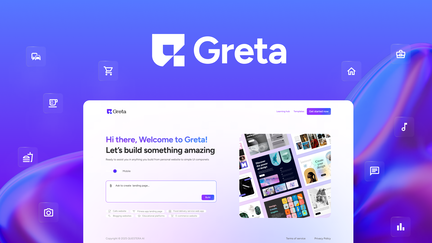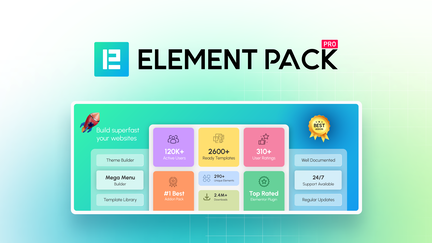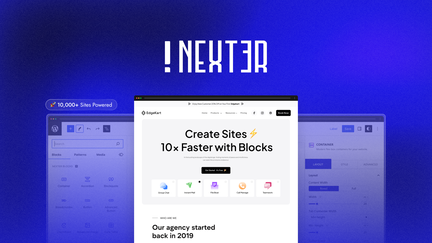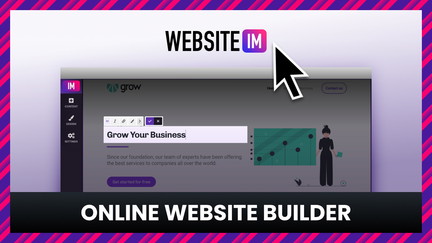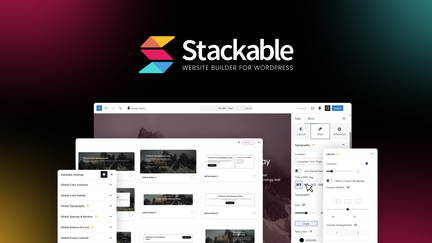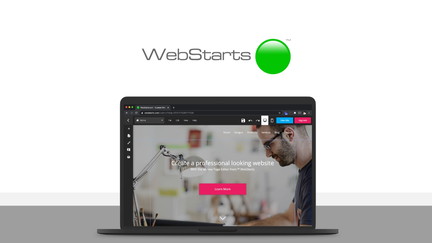You want a web builder that keeps up with 2025 — faster workflows, smarter AI, and fewer plugins to manage. This roundup helps you cut through the noise so you can pick a tool that matches your workflow, whether you prefer hosted no-code builders, WordPress block toolkits, or AI-assisted full‑stack generation. Below are the top 7 options, what they do best, and how they can save you time and money.
Top Picks
|
Category |
Product |
Price |
Score |
|---|---|---|---|
|
🏆 Best Overall |
$69 |
100/100 |
|
|
💰 Best Value |
$59 |
100/100 |
|
|
🎯 Best for Creators (Link-In-Bio) |
$59 |
76/100 |
|
|
💡 Best WordPress Toolkit |
$49 |
84/100 |
|
|
🚀 Best AI Full-Stack Builder |
$59 |
64/100 |
|
|
⚡ Best Hosted No-Code Builder |
$69 |
94/100 |
|
|
🔊 Best Hosted AI-Assisted Builder |
$77 |
68/100 |
How We Picked These Tools
We evaluated each tool on the things that matter to you in 2025: ease of use (how fast you can launch or iterate), value for money, performance (page speed and lean builds), extensibility (plugins, white-label, custom domains), AI and no-code features, and support/reliability. We favored products that solve a clear use case—hosted quick sites, link-in-bio pages, Gutenberg/Elementor ecosystems, and AI-driven app/site generation—so you can match the tool to your needs quickly.
Greta
Greta lets you move from idea to a working app without getting buried in boilerplate. You give prompts, assemble ready-made UI pieces and the AI helps stitch together front end and some backend logic.
For daily use, it’s great for simple landing pages, MVPs, small CRMs or prototypes you want to demo quickly. For special projects—like a client proof of concept or a temporary internal tool—you can spin something up fast and show real functionality.
Be aware the backend features and file limits can feel restrictive for larger projects, and support responsiveness has been mixed. If you want a friendly, prompt-driven way to build simple apps and iterate quickly, Greta is worth trying; if you’re building large-scale production systems you’ll probably pair it with other tools.
What People Say
People like Greta for rapid prototyping and small apps—the AI and UI components get you results fast. Common caveats: file limits, limited backend depth for complex projects, and occasional reliability/support issues.
Overall Sentiment: Mixed

🗣️ webgenerator
I have created two apps and am very happy with the small number of credits required. The second app is fully functional — a simple CRM with business details, related contacts, and related activities. Very well executed with minimal adjustments. The only downside was the 50-file limit.
🗣️ a0493
Good for simple apps and websites. I still prefer to use Cursor + replit for most serious web dev.
Integrations
|
Software |
Integration Quality |
|---|---|
|
Replit |
Works well as an external dev environment for more advanced edits |
|
Cursor |
Compatible in practice; some users prefer pairing Greta with Cursor for serious development |
|
Third-party APIs |
Basic support—useful for simple integrations but may need custom work for complex flows |
Security
|
Feature |
Protection Level |
|---|---|
|
SSL / Transport Security |
Standard |
|
Access Controls |
Basic |
|
Data Export |
Limited |
Benefits
- Quickly generate front ends and basic backends with AI prompts
- Ready-made UI components speed up prototyping
- Low credit usage for simple apps and MVPs
Current Price: $59.00
Rating: 3.2 (total: 5+)
Linkero
Linkero is a simple, focused link-in-bio builder that helps you gather your socials, links and small site content into one neat page. You can set up a branded bio page in minutes, point your custom domain with a CNAME, and drop in buttons that connect to forms or your CRM.
For day-to-day use it’s great if you need a tidy home for links on your social profiles or a quick landing page for a side project. For special occasions—like promoting a product launch, a short campaign, or a client proof-of-concept—you can get something polished live fast. The trade-offs are worth knowing: support is generally helpful for setup, but white-labeling and deeper docs are still improving. If you want a fuss-free way to centralize links and share a clean, branded presence without building a full site, Linkero is an easy place to start.
What People Say
Users appreciate how fast you can go from signup to a polished bio page, reliable CNAME setup, and practical integrations. Common notes: support is helpful but documentation and full white-labeling are still maturing.
Overall Sentiment: Mixed

🗣️ christian814
Linkero is everything we wanted to build a bio page to connect to social sites. Support was very responsive and got me through the CNAME setup quickly.
🗣️ AndriaBauneeEnterprises
This is super simple to use. Within 20 minutes I went from signing up to publishing with brand colors. The CNAME feature made my custom domain live within 30 minutes and I linked a button block straight into my CRM.
Integrations
|
Software |
Integration Quality |
|---|---|
|
Custom Domains (CNAME) |
Reliable — users report domains going live quickly when configured |
|
CRMs (via button/redirect) |
Practical — you can link forms directly into your CRM for simple workflows |
|
Webhooks |
Flexible — enables deeper integrations for users comfortable with external automation |
|
External Analytics (e.g., Google Analytics) |
Supported — lets you track visitors beyond the built-in analytics |
Security
|
Feature |
Protection Level |
|---|---|
|
SSL / Transport Security |
Standard |
|
Account Authentication |
Basic |
|
Data Export / Analytics |
Limited |
Benefits
- Quickly build a clean link-in-bio or simple landing page
- Custom domain support via CNAME for a professional URL
- Easy integration with forms and CRMs via button blocks or webhooks
- Built-in analytics plus support for external analytics
- Simple appearance customization and option to hide branding
Current Price: $59.00
Rating: 3.8 (total: 5+)
Element Pack Pro
Element Pack Pro bundles a massive library of widgets, an assets manager, a header/footer builder, and a small ecosystem of themes and plugins so you can build polished WordPress sites without juggling a dozen tools. If you use Elementor, it can replace Elementor Pro for many needs; if you prefer the block editor, the included ZoloBlocks gives you useful Gutenberg blocks.
For day-to-day site work you’ll appreciate the performance-minded asset manager and the intuitive UI that keeps customization quick. For special projects—client handoffs, multi-site builds, or launching a micro-site—you get templates, a theme (Rooten), and extra plugins for FAQs, testimonials and portfolios that save time. It’s practical, well-supported, and a strong value if you want one toolkit that handles both routine edits and bigger site builds.
What People Say
Users praise how Element Pack Pro streamlines builds—many note they stopped paying for Elementor Pro after switching. People highlight the asset manager, header/footer builder, and the extra bundled theme/plugins as real time-savers.
Support is repeatedly called responsive and helpful.
Overall Sentiment: Positive

🗣️ christianlasorsa
I’ve been using the Element Pack Pro plugin for several months now, and I can confidently say it has completely transformed my WordPress development experience. I was able to cancel my Elementor Pro subscription entirely — a decision that has saved me money while actually improving my website’s functionality. The plugin boasts hundreds, if not thousands, of additional widgets… the developers have clearly prioritized optimization, ensuring that all these powerful tools don’t bog down your site’s loading times.
🗣️ asyrofmuzakki
I bought the Element Pack Pro Tier 1 deal thinking I was just getting a widget library for Elementor. It included their premium Rooten Theme, separate plugins for FAQs, Testimonials, Portfolios, and ZoloBlocks for Gutenberg. This isn’t just an addon; it’s an entire ecosystem that supports both Elementor and the native block editor. For the price of a single plugin, I got a full professional toolkit for my 3 websites.
Integrations
|
Software |
Integration Quality |
|---|---|
|
Elementor |
Excellent — deep widget set and native compatibility |
|
Gutenberg (ZoloBlocks) |
Good — block editor support via the included ZoloBlocks plugin |
|
Rooten Theme / WordPress |
Seamless — bundled theme and child theme speed up launches |
|
Additional bundled plugins (FAQs, Testimonials, Portfolios) |
Practical — built to work together out of the box |
Security
|
Feature |
Protection Level |
|---|---|
|
Regular Updates |
High |
|
Optimized Asset Management |
Moderate |
|
Active Support & Fixes |
Moderate |
Benefits
- Huge library of widgets and design elements for Elementor
- Can replace Elementor Pro features like header/footer building
- Includes theme (Rooten) and extra plugins for a full toolkit
- Assets manager and optimization focus to keep sites fast
- Supports both Elementor and Gutenberg via ZoloBlocks
Current Price: $69.00
Rating: 5.0 (total: 5+)
Nexter
Nexter bundles a lightweight theme, 90+ Gutenberg blocks, and handy extensions so you can build and ship WordPress sites without juggling a bunch of plugins. If you work on routine site edits, you’ll like how it speeds up common tasks and trims maintenance.
For bigger projects — client sites, landing pages, or small ecommerce stores — the template library and block-driven approach get you most of the way there with less custom code. You’ll find it especially useful if you want performance gains and fewer third-party add-ons; some WooCommerce-specific pieces are still growing, but the roadmap shows they’re working on it.
If you want a practical, no-nonsense toolkit that helps you move faster, Nexter is worth a look.
What People Say
Users highlight how Nexter replaces multiple plugins, speeds up builds, and simplifies maintenance. Reviewers praise its lightweight approach and bundled blocks, while noting a few areas (WooCommerce blocks, block customizations, and documentation) that are actively being improved.
Overall Sentiment: Positive

🗣️ digitalmandar
We run a digital agency and handle 300+ client sites on Elementor, so performance and maintenance matter. Nexter feels like an out-of-the-box solution for small to medium sites — it improves performance and cuts dependency on extra plugins, saving our team a lot of time.
🗣️ mediacerebri
Lightweight yet powerful — the Nexter Theme plus 90+ Gutenberg blocks and extensions made setup quick with a small learning curve. It replaces several plugins, includes code snippets and some security features, and gets you close to a no-code workflow.
Integrations
|
Software |
Integration Quality |
|---|---|
|
WordPress (Gutenberg) |
Excellent — native block editor support and theme compatibility |
|
WooCommerce |
Moderate — basic support today, more WooCommerce blocks planned |
|
Third-party stock libraries (Freepik / Envato) |
Planned — integrations are on the roadmap and under consideration |
|
Agency workflows |
Good — designed to reduce plugin overhead and speed client handoffs |
Security
|
Feature |
Protection Level |
|---|---|
|
Nexter Extensions (security options) |
Moderate |
|
Regular updates and active fixes |
High |
|
Reduced plugin footprint (fewer third-party plugins) |
Moderate |
Benefits
- 90+ Gutenberg blocks and ready templates to speed builds
- Bundled theme, blocks, and extensions reduce plugin clutter
- Performance-minded approach that helps page speed
- Built-in code snippets and security extensions
- Good fit for agencies and small-to-medium client sites
Current Price: $49.00
Rating: 4.79 (total: 42+)
WEBSITE.IM – Website Builder
If you want a no-code way to get a clean, responsive site live without wrestling with themes or plugins, Website.im is the kind of tool that makes that easy. You pick a theme, drag in pre-made content blocks, and tweak colors, fonts, and images — it’s designed so you only edit once and it just works across desktop and mobile.
In day-to-day use it’s great for personal portfolios, small business landing pages, event microsites, or seasonal promo pages. For more specific needs you can embed code (Eventbrite, VolunteerMatch, custom HTML) or use the built-in cart and blog to add basic ecommerce and content. It’s not meant to replace a full-featured ecommerce platform for complex shops, but for quick marketing sites, client microsites, or helping less-technical friends maintain their pages, it’s very practical. If you want something fast, approachable, and forgiving, give Website.im a try — especially when you value simplicity over heavy customization.
What People Say
Users appreciate how quick and approachable Website.im is for marketing sites and event pages, praising the AI starter templates and the ability to drop in custom HTML. Common criticisms focus on inconsistent support response times and a few account issues reported by some users.
Overall Sentiment: Mixed

🗣️ Jez
Super simple and fast to use — if you can navigate a Word doc you can build a decent-looking site. Support has been responsive for me and I moved several client sites off Wix to avoid their fees. The HTML field is a neat trick: paste custom HTML to tweak modules for mobile or design fixes.
🗣️ IgniteArtsAndSTEM
The AI site generator gave a perfect base that I could quickly customize, and I liked being able to embed code from other platforms (Eventbrite, VolunteerMatch). It’s ideal when you need elegant seasonal or event sites without WordPress overhead.
Integrations
|
Software |
Integration Quality |
|---|---|
|
Custom HTML / embeds |
Excellent — paste HTML or embed third-party widgets with few limitations |
|
Event platforms (Eventbrite, VolunteerMatch) |
Good — embeds work well for event pages and registration widgets |
|
Domain providers |
Good — connect existing domains or buy one through the platform |
|
Built-in ecommerce (shopping cart) |
Moderate — fine for simple stores, not a full Shopify replacement |
Security
|
Feature |
Protection Level |
|---|---|
|
Free SSL certificate |
High |
|
Platform-side hosting and updates |
Moderate |
|
Custom domain connection controls |
Moderate |
Benefits
- No-code editor with drag-and-drop blocks for fast page builds
- Responsive themes and content blocks that work on mobile and desktop
- Built-in features: shopping cart, blog, galleries, forms, newsletter
- Custom HTML field and embed options for extra flexibility
- Free SSL and ability to connect your own domain
Current Price: $77.00
Rating: 4.48 (total: 46+)
Stackable
If you use WordPress and want a block-first way to build nicer pages without wrestling with heavyweight page builders, Stackable is worth a look. You pick blocks and templates, tweak spacing, colors and content, and it feels familiar if you’ve used Gutenberg before. It’s useful for everyday sites like blogs, small business pages, or client microsites, and it also handles special projects like event landing pages or campaign microsites fast.
Because it’s lightweight and template-driven, you can get a polished site up quickly — and if you’re trying to avoid ongoing Elementor costs, it can save you money while keeping design flexible.
What People Say
You’ll hear people praise Stackable for making WordPress design approachable — users often mention saving money versus subscription builders and being able to roll out multiple sites quickly. Common notes: solid templates, steady updates, and a gentle learning curve that even less technical folks can handle.
Overall Sentiment: Positive

🗣️ twaintaylor
I bought a code and have made good use of it so far on multiple sites. I’ve tried Qubely as well, but Stackable is way better and easier to use. Saves me a lot of money compared to an Elementor subscription. It really makes web design accessible to everyone. My wife who’s not into tech created her own website using this tool.
🗣️ rouk
I was happy to see this appear on AppSumo again as it is a well established WordPress plugin. It has plenty of templates already to use. The most important part is that they have active development with a changelog. It is worth a punt for Tier 1 if you have a few websites.
Integrations
|
Software |
Integration Quality |
|---|---|
|
WordPress / Gutenberg |
Excellent — built specifically as a Gutenberg block library |
|
Themes (e.g., Blocksy) |
Good — works well with modern lightweight themes |
|
Custom HTML / embeds |
Good — you can drop embeds or custom code where needed |
|
WooCommerce |
Moderate — suitable for basic store pages and product layouts |
Security
|
Feature |
Protection Level |
|---|---|
|
Active development & changelog |
High |
|
Compatibility with WordPress user roles and permissions |
Moderate |
|
Plugin-based solution (no hosting-level security included) |
Low |
Benefits
- Gutenberg-native block library for flexible, modern layouts
- Ready-made templates and wireframes to speed up builds
- Approachable for non-technical users — easy to pick up
- Active development and changelog keep it reliable
- Cost-effective alternative to subscription page builders
Current Price: $59.00
Rating: 4.87 (total: 47+)
WebStarts
If you want a straightforward drag-and-drop builder to get sites live fast, WebStarts is worth a look. You can use it for everyday needs like a simple blog, a local business page, or a landing page with a signup form — the editor is focused on speed rather than bells and whistles.
For special projects, like a small campaign microsite or a network of local sites, the built-in email/newsletter and forms can save you from juggling extra tools. There are helpful AI features to speed content creation (note: AI generation uses daily credits), and the interface keeps things simple so you won’t get bogged down.
If you prefer a builder that gets you online quickly and doesn’t force you into a plugin ecosystem, WebStarts is a practical pick — especially if you want a low-fuss, self-driven workflow.
What People Say
You’ll hear people highlight how approachable WebStarts is: users praise the speed of getting a site live, the convenience of integrated email/forms, and the human, simple feel compared with more technical platforms. At the same time, some folks mention occasional onboarding or support frustrations, so be ready to tinker on your own if you need rapid progress.
Overall Sentiment: Mixed

🗣️ applicandosoluciones
A true gem in a world of soulless website builders. It feels human — not just another tool — and you can create something beautiful and functional without headaches. Fast, clean, and direct. I’m using WebStarts to build a network of local websites to help connect small businesses with their communities.
🗣️ 6900416be67d45b1bb310641ddc671d6
I’ve built a couple of simple sites so far and it’s been pretty quick and easy to work with. Since forms, email newsletter, etc. are all included, you don’t really need anything outside of this builder to get going. I bumped up to tier 2 because I found it useful enough for my purposes.
Integrations
|
Software |
Integration Quality |
|---|---|
|
Email / Newsletters |
Good — native tools for lists and campaigns |
|
Forms |
Good — built-in forms for lead capture and contact |
|
AI Website Builder |
Moderate — useful but limited by daily credit system |
|
Custom Code / Embeds |
Good — you can drop embeds or custom snippets where needed |
|
Hosting (Server Location) |
Limited — hosting is US-based only, no European server choice |
Security
|
Feature |
Protection Level |
|---|---|
|
SSL/TLS for sites |
High |
|
US-based hosting and data location |
Moderate |
|
Account-level access controls |
Moderate |
|
No public details on advanced DDoS or enterprise protections |
Low |
Benefits
- Quick drag-and-drop builder for fast site launches
- Built-in forms, email/newsletter tools, and blogging
- AI-assisted site creation to speed content work (daily credits apply)
- Lightweight approach — fewer plugins and simpler maintenance
- Good for rolling out multiple local or landing sites quickly
Current Price: $69.00
Rating: 4.72 (total: 325+)
FAQ
How Do You Choose The Right Web Builder For Your Project?
You start by matching the tool to your goals and skills. If you want an all-in-one hosted solution for quick landing pages and a simple workflow, pick a hosted builder; if you need deep customization, SEO control or plugin ecosystems, a WordPress-based solution with blocks or Elementor add-ons is smarter. Check real-world details like whether the product supports custom domains and CNAME, white-label options if you build for clients, and integrations you actually need.
Look at price points — many top choices sit between $49 and $77 per code — but focus more on feature fit: match the tool to your use case, test a demo or free tier, and read recent reviews about updates and support responsiveness before you buy.
What Hidden Costs Or Buying Considerations Should You Watch For?
Expect some costs beyond the initial code: premium templates, stock images, extra site activations, managed hosting, and paid integrations can add up. Pay attention to limits that affect your workflow such as file or page caps, AI credit systems, or daily generation quotas since those can slow you down or force upgrades.
Also verify exportability and migration options so you aren’t locked in, and confirm the vendor’s refund/support policies. Read recent user feedback about documentation and support response times because even a $59 or $69 deal can become expensive if you spend hours troubleshooting or paying for external help; these are the kinds of hidden costs that matter most.
How Do You Handle Practical Issues Like Performance, Support, And Common Limitations?
Start by building in a staging or test site so you can try templates, blocks and any AI features without risking a live page. Optimize images and use a CDN or caching plugin for WordPress sites to keep load times low, and minimize third-party plugins when using themes or toolkits like Element Pack Pro or Stackable to avoid bloat. If you run into AI errors, file limits or missing backend features, document the issue, check the product roadmap and knowledge base, and open support tickets while keeping a clear timeline; many users report that fast resolution depends on persistence and using the vendor’s preferred support channel. Finally, keep backups and a simple rollback plan, and remember that you can often combine strengths — for example use a hosted builder for marketing pages and a WordPress stack for more complex client sites — so you don’t force one tool to do everything.
Customer Favorites
When choosing between Greta, Linkero, and Element Pack Pro, you typically prioritize how quickly you can build and customize sites, the variety of ready-made templates and widgets, and how well each tool fits into your existing workflow. You also weigh performance, mobile responsiveness, SEO friendliness, support and documentation, and price—so you’ll lean toward Greta for a streamlined, user-friendly build, Linkero for marketing and link-focused features, and Element Pack Pro if you need deep Elementor integrations and advanced widget control.
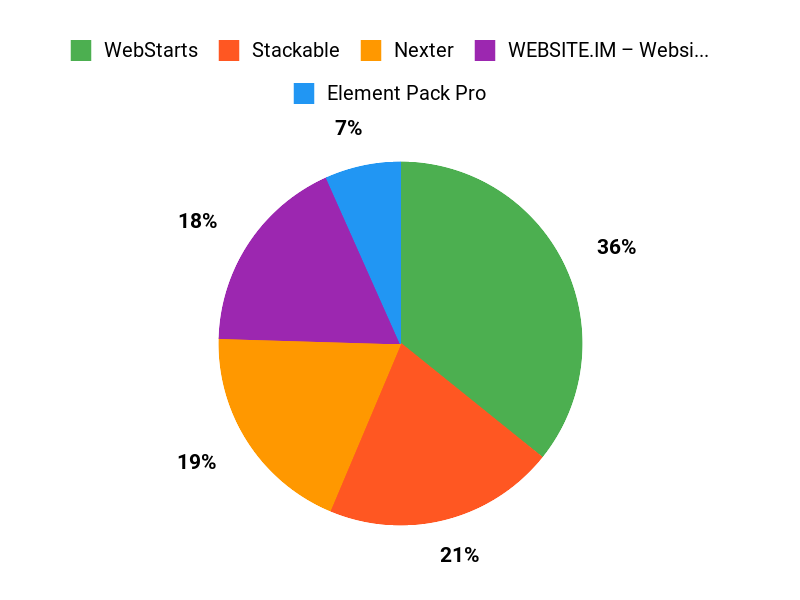
Wrapping Up
By focusing on your workflow and goals you can pick a winner quickly: Element Pack Pro is the most complete option if you use Elementor, Stackable gives you best-in-class Gutenberg blocks and long-term value, and hosted builders like WebStarts or WEBSITE.IM are ideal if you want no infrastructure headaches. If you need AI-assisted app or full-stack scaffolding, test Greta carefully (it shows promise but also mixed feedback).
Match the tool to whether you want hosted simplicity, WordPress flexibility, or AI-driven speed, then try a demo or a small project to confirm it fits your process.
| Product | Image | Rating | Key Highlights | Ease of Use | Customer Support | Price |
|---|---|---|---|---|---|---|
| Greta |
 |
3.99/5 (161 reviews) |
|
Intuitive interface with a learning curve; may require guidance for backend functionality. | Mixed reviews on responsiveness; some users experienced slow support. | $59 |
| Linkero |
 |
4.75/5 (32 reviews) |
|
Simple setup; user-friendly for non-technical users. | Responsive support team with detailed help for CNAME setup. | $59 |
| Element Pack Pro |
 |
5.0/5 (42 reviews) |
|
Very user-friendly with an intuitive interface; minimizes reliance on multiple plugins. | Highly responsive and knowledgeable support; users praise the assistance provided. | $69 |
| Nexter |
 |
4.79/5 (42 reviews) |
|
Lightweight yet powerful; easy for both novices and advanced users. | Dedicated support, emphasizes user feedback for continual improvement. | $49 |
| WEBSITE.IM – Website Builder |
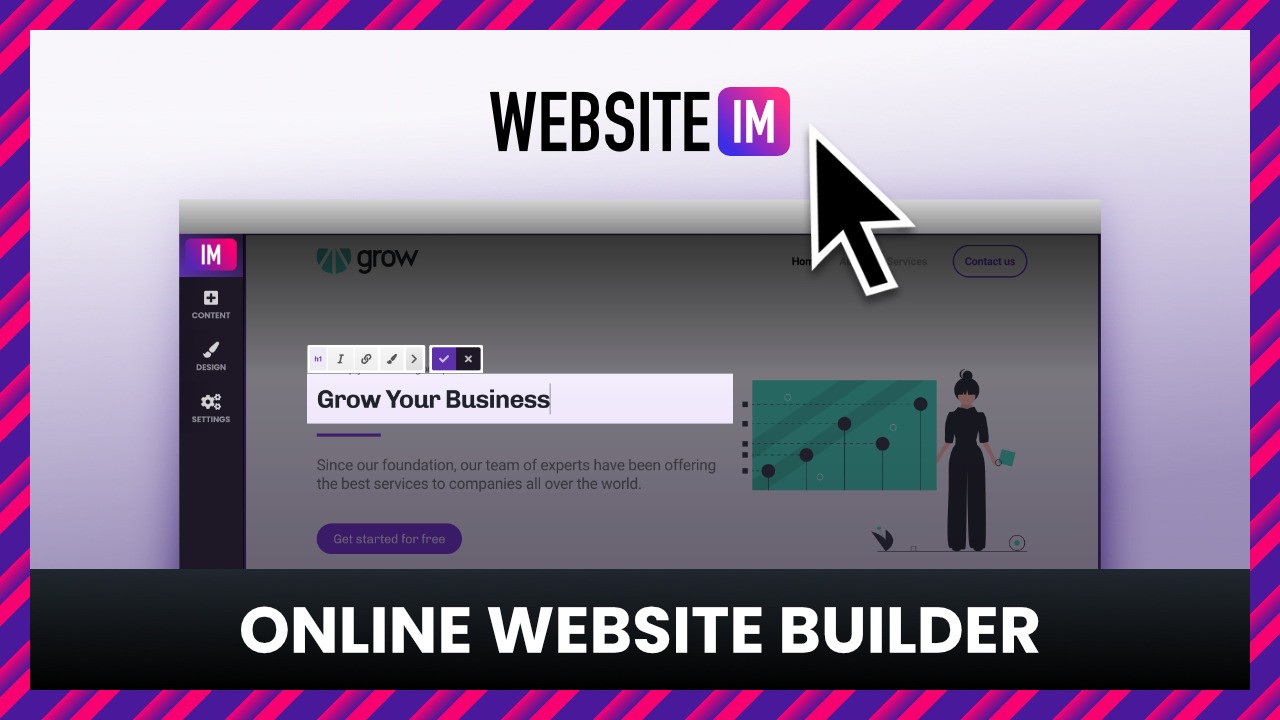 |
4.48/5 (46 reviews) |
|
User-friendly with drag-and-drop functionality; ideal for quick turnaround. | Varied experiences; some users report delays in service. | $77 |
| Stackable |
 |
4.87/5 (47 reviews) |
|
Easy to grasp, requires little to no technical background. | Responsive customer support; active community feedback. | $59 |
| WebStarts |
 |
4.72/5 (325 reviews) |
|
Straightforward site building; potential challenges with advanced designs. | Mixed feedback; automated responses often lead to longer wait times. | $69 |
This Roundup is reader-supported. When you click through links we may earn a referral commission on qualifying purchases.


